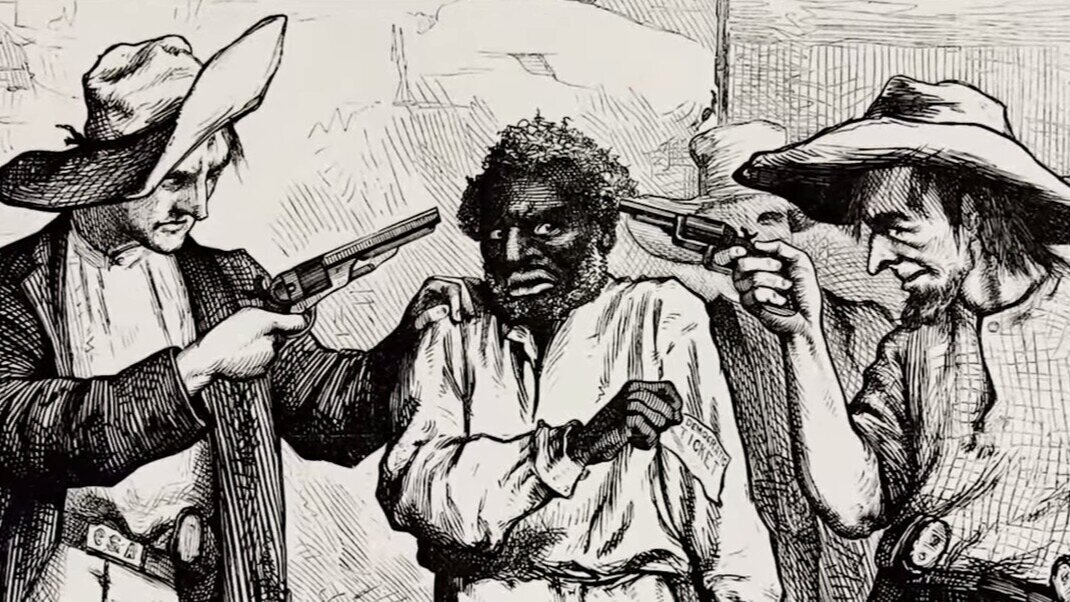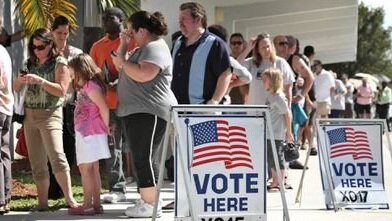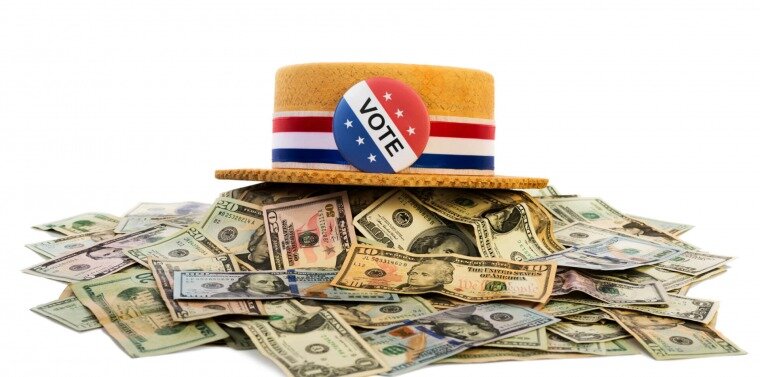Love in Action : Our Fragile Democracy
Love in Action : Week 15
Love in Action : FIRST Wednesdays 12-1pm mst
Please join Lead with Love for zoom webinars each month on first Wednesdays that highlight current issues related to community wellbeing, such as justice, freedom and climate change that need of our help. We will provide tangible actions and perform these efforts during the 1 hour meeting.
This week our efforts will focus on Our Fragile Democracy and Expanding Voting Rights.
Free and fair elections have direct impact on our lives. A government that is representative of the people it serves ensures responsiveness to their needs. Combatting climate change, repairing and modernizing our crumbling infrastructure, and fixing healthcare are all critical issues that, while popular among voters, can't be addressed until our democracy is first healed from this fractured state.
Our democracy has a fraught history of subverting the will of the people, but the truth is, that historical blemish endures today. More than a half-century since Congress passed the landmark Civil Rights Act, voter suppression (such as limiting or closing polling locations in minority communities), partisan gerrymandering, corruption and dark money, and casting doubt on the democratic process are rampant. We mustn’t undermine the progress of past generations by taking for granted a system of governance of, by, and for the people.
Congress agrees. The 117th Congress’s first act – known, symbolically, in each new Congress as House Resolution 1 (H.R. 1) – is intended to protect and strengthen our fragile democracy. The ‘For the People Act’ has been introduced both in the U.S. House and Senate. Among other measures, the Act includes provisions such as making Election Day a federal holiday, limiting and bringing transparency to campaign finance, expanding voter rights, and more.
As constituents, it is our responsibility to engage in the democratic process by supporting the lawmakers who co-sponsored the Act and demanding from those who haven’t that they do so.
This week, we will learn about our country's history of voter suppression and how it led us to today’s vulnerable status. During this free one-hour call, we will work together to reach out to our representatives to compel their support of this important democratic legislation.
If you haven’t yet registered for Love in Action, please do so by clicking the button below.
What You’ll Need
Pen/Pencil
Paper/Journal
Computer with Email/Wifi
Key Threats Within Our Democracy
The Fraud Pretext
Allegations of fraud have a racist history and cause an atmosphere of mistrust among the electorate.
In the 1890s, southern states employed literacy tests, poll taxes and other laws to regulate voting, making no secret that these laws were designed to prevent African-Americans from voting.
However the 15th Amendment made it illegal to deprive voting rights based on race so the southern lawmakers used a pretext of voter fraud to justify their nefarious laws that erected a barrier between minority and poor voters and the ballot box.
In recent elections allegations of fraud provide a dangerous pretext to discount losses and confuse constituents. For example, this past year, claims of widespread fraud in regards to mail in voting were mounted early during the campaign season and became a convenient narrative to justify a disappointing loss. There has never been any evidence of widespread voter fraud with mail in ballots— in fact, the United States has never had any significant voter fraud in its entire electoral history.
And yet, alleging fraud to discount a loss can effectively seed mistrust in the democratic system. In the case of the 2020 election, we saw the mistrust and confusion build to such a fever that it resulted in the violent and deadly siege at the Capitol.
Voter Suppression/Discriminatory Practices
Types of voter suppression:
Poll Tax (Reconstruction era - 1960’s)
Under Jim Crow laws, payment of a poll tax was required for voting registration in a number of states.
This tax became a device for depriving voting rights to Black and poor people who couldn’t afford the tax or were intimidated to make the payment. In many cases the poll tax included a grandfather clause that favored white voters by waiving the requirement for anyone whose grandfather had voted.
In 1964, the poll tax was rendered illegal with the ratification of the 24th amendment.
Literacy Tests (Reconstruction era - 1960’s)
Literacy tests were used to disenfranchise Black people and immigrants from voting under the appearance of testing for literacy (which was, in many cases, illegal for enslaved people prior to abolition).
These tests were often subjectively conducted and included absurd components such as counting jelly beans in a jar or bubbles on a bar of soap.
The Voting Rights Act put an end to these testing requirements.
Intimidation, Trickery and Violence
In our history these efforts were as overt as groups like the KKK terrorizing Black people in order to prevent them from voting.
More recently, there are scandals of police harassing minority voters and candidates / campaign groups tricking voters into thinking they are behaving fraudulently or misinforming them on how/when to vote.
During the 2020 election, one Election Protection hotline alone received over 100,000 reports of voter intimidation.
Complicated Registration and Voting Requirements
Rather than being an inclusive process, many counties make registration and voting protocols complicated. These practices have the biggest impact on marginalized communities.
For example, some counties require voters to register over and over, some counties require proof of a street address, some counties offer limited hours to register in person.
Photo Identification Requirements
Requiring photo identification to register or vote is a dubious requirement because some citizens can not afford id cards or can not afford to take off work to acquire proper identification. In this way, experts equate it to a poll tax which is illegal.
Photo ID requirements also have consequences for the trans community.
The Brennan Center estimates that in Texas alone, for example, the new photo ID requirements could prevent hundreds of thousands of eligible voters from casting a ballot — including a disproportionate number of African-American and Mexican-American citizens.
Purging of Voter Rolls
Purging voter rolls is a system of removing voters from their registered status.
In many cases, these voters are unaware that they are no longer registered and show up on election day only to find they are unable to cast a vote. This practice has become weaponized with Black voters over represented by 45% in these purges, and Latinx voters over represented by 24%.
Closing Polling Stations / Limit Polling Hours / Slash Early Voting Days /Using Old or Broken Voting Machines
Closing voting booths are other methods that create long lines at polling locations is one of the most common forms of voter suppression that disproportionately affects minority voters in particular in swing states.
Polling locations have been reduced by the hundreds in these communities creating transportation barriers and forcing people- particularly poor people- to choose between their work and income or voting.
2013 Gutting of the Preclearance Section of the Voters Rights Act
A special provision of the 1965 VRA was the preclearance requirement which required states with a history of racist practices to gain federal approval before changing any voting laws. In 2013, this section was struck down by the Supreme Court deeming it no longer necessary- essentially making the claim that racism no longer existed.
Many of the voter suppression techniques listed here have been reimplemented with impunity since this gutting of this valuable provision.
Campaign Financing
Public opinion is being upstaged by a powerful few who have greater access to politicians that rely on their financial support to meet campaign fundraising quotas. It is said that whether there is zero interest in a bill or complete interest in a bill, there is always about a 30% chance of a law being passed. Public will does not shape the outcome. This is because politicians, even while in office, are preoccupied with fundraising- spending up to 75% of their time in office on this effort. With the current system in place, politicians are naturally going to spend more time with deep pocket donors and become deferential to their interests.
Partisan Gerrymandering
District lines are redrawn every ten years when the census is taken by whatever party controls the legislature. Based on population updates, congressional seats are respectively allocated and districts are redrawn. Partisan gerrymandering implies that the districts are drawn to create an advantage for one party rather than representing the community in which they serve.
Voters Rights Act
The Voting Rights Act of 1965 is considered one of the most significant pieces of civil rights legislation in the U.S. It was signed into law by Lyndon Johnson after a peaceful Black protest march from Selma to Montgomery, Alabama turned into a violent attack by police officers. The horror gained national attention which put pressure on the government to react.
The act provided nationwide protections for voting rights and banned discriminatory practices such as literacy tests.
H.R.1: For the People Act
Ease of Voting
Votes that Count More Equally
Improve Ethical Standards of Candidates
Amplify the Power of Voters Who Have Less Money
Step into Action
Check to See if Your Representatives Have Co-Signed H.R.1
Click the button below to see a list of cosponsors in the House. You can search for your representative by state on the left side of the screen. If you don’t know the name of your congressperson, you can scroll down to find buttons in the next section to help you do that first. This is a fantastic time to get to know their names if you don’t already!
Show Support to Your Representatives Who Have Already Cosponsored H.R.1
You may opt to use the following script when either calling or emailing your state legislators. All the better if you are inspired to create your own statement in your own words. Your senator and representative are working to represent YOUR interests and values.
Because you are here with us, we empower you to represent yourself as a member of this organization if that feels good and brings you comfort. Feel free to omit this section if you prefer to reach out as an individual.
Dear (Representative),
My name is [Name]. I’m a member of Lead with Love, a non profit working to bring positive engagement with popular causes, and I am [writing/calling] from [zip code] in [city].
Thank you for your support of H.R. 1, the For the People Act. Protecting our fragile democracy requires a multi-pronged approach that protects the right to vote, ends partisan gerrymandering, creates transparency in campaign finance, and builds trust in our system of democracy.
I deeply appreciate your commitment to these core values and encourage you to compel your colleagues to do the same. I am asking you do all in your power to pass this legislation. As your constituent, please let me know how if there’s anything I can do to build support in my community for HR 1, the For the People Act
Encourage Your Representatives Who Have Not Already Cosponsored H.R.1 To Do So
You may opt to use the following script when either calling or emailing your state legislators. All the better if you are inspired to create your own statement in your own words. Your senator and representative are working to represent YOUR interests and values.
Because you are here with us, we empower you to represent yourself as a member of this organization if that feels good and brings you comfort. Feel free to omit this section if you prefer to reach out as an individual.
Dear (Representative),
My name is [name] and I am [writing/calling] from [city, state]. ]. As a member of Lead with Love, a non profit working to bring positive engagement with popular causes, I urge you to publicly support and co-sponsor H.R. 1, the For the People Act. Protecting our fragile democracy requires a multi-pronged approach that protects the right to vote, ends partisan gerrymandering, creates transparency in campaign finance, and builds trust in our system of democracy.
These values are core to our way of life, and as we witnessed last month, are fragile. Your support and commitment is critical to protecting and restoring our system of governance that is responsive to its people. As your constituent, please let me know how if there’s anything I can do to support your commitment and build support in my community.
NOTE: For the representative, after you enter your zip code, you will be provided with a link to their website on the left side of the screen - this House of Representatives site does not contain the contact info directly
Share this toolkit!
We encourage you to let your community know about the amazing work you are doing to help strengthen democracy in America. Please use the links below to share this toolkit or simply share by text or email by copying and pasting the url in your browser.
Commit to our next session!
We’ll support you in making sure you get here next time. The value of your voice and efforts are immeasurable. We rely on your showing up to advance these democratic, justice and environmental issues. Fill out the form below to continue your service to our country’s wellbeing.
















